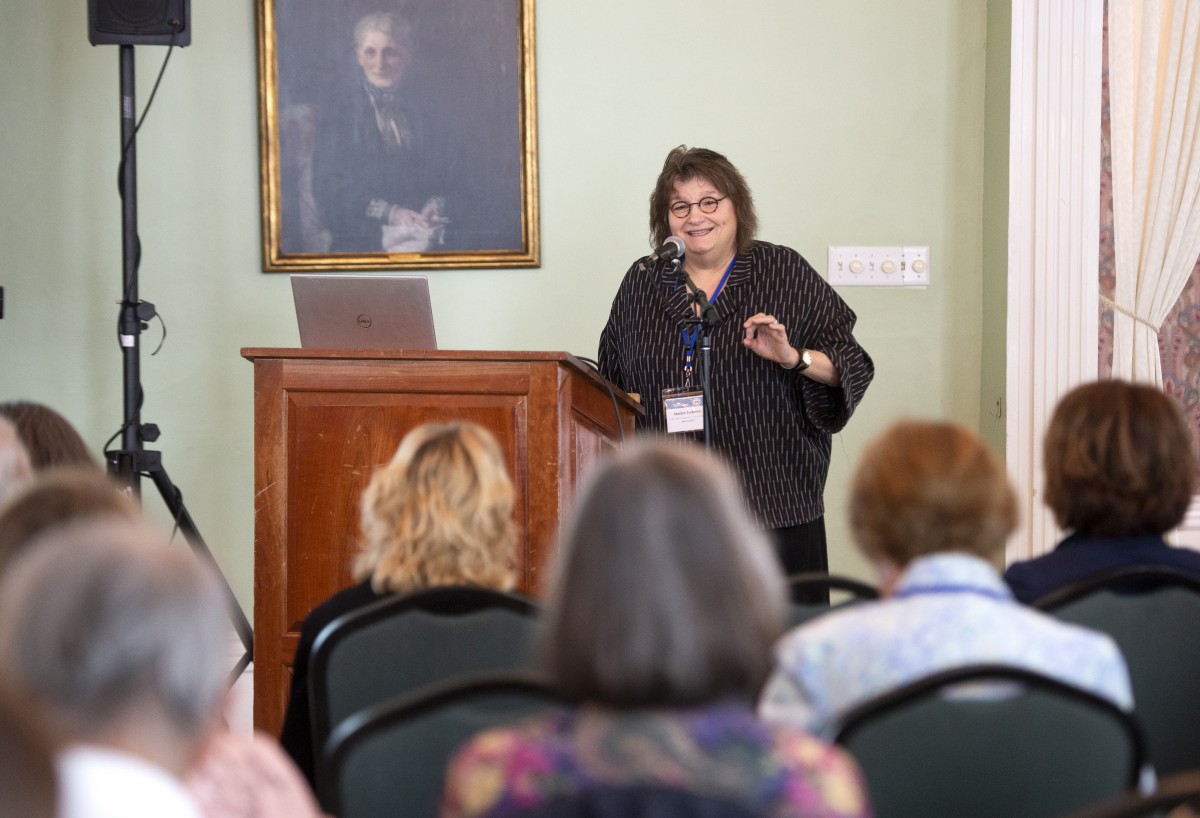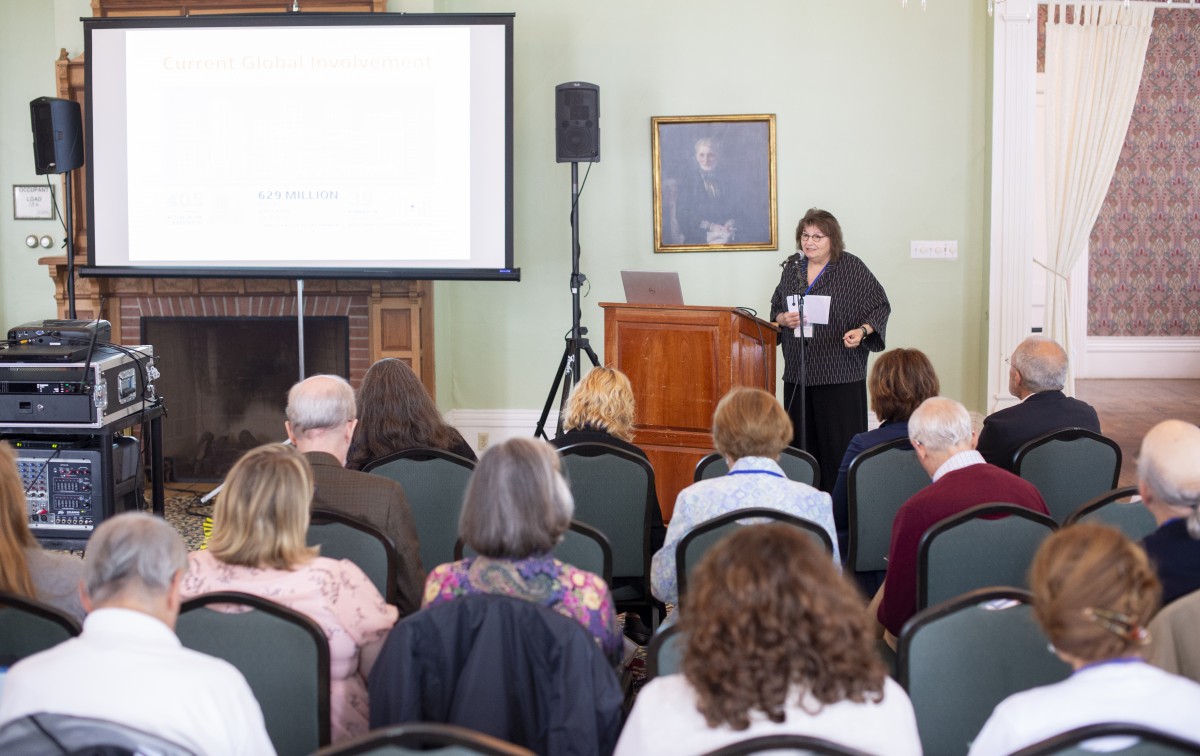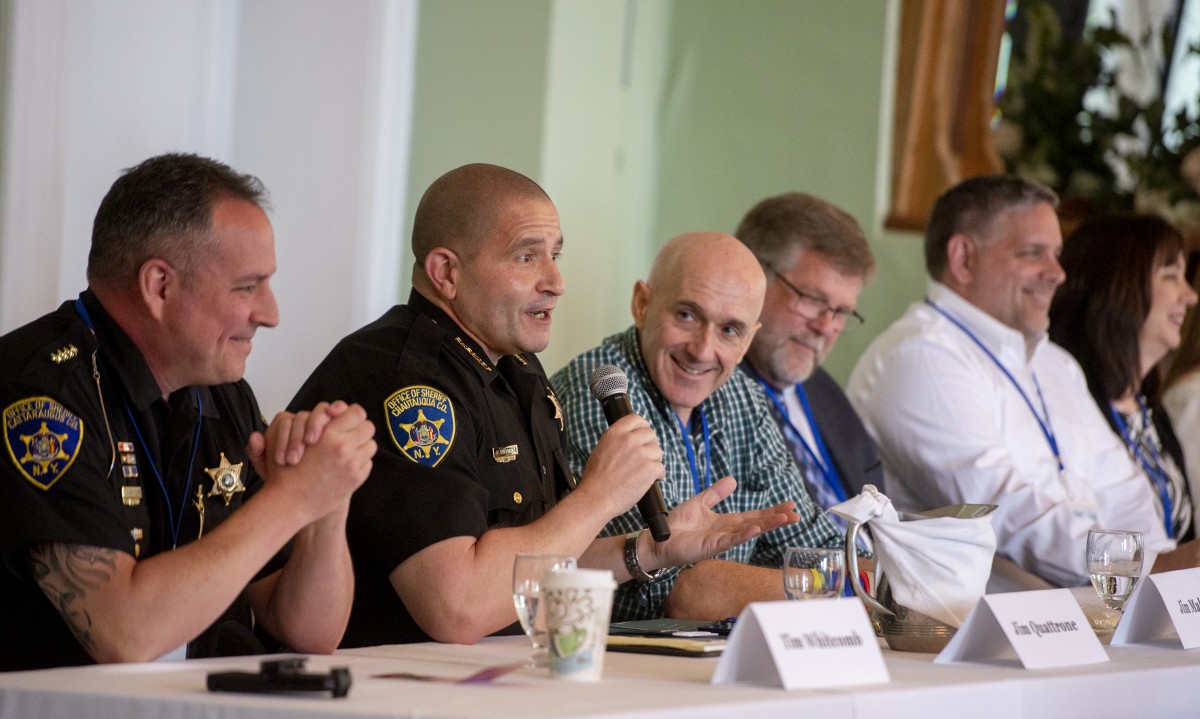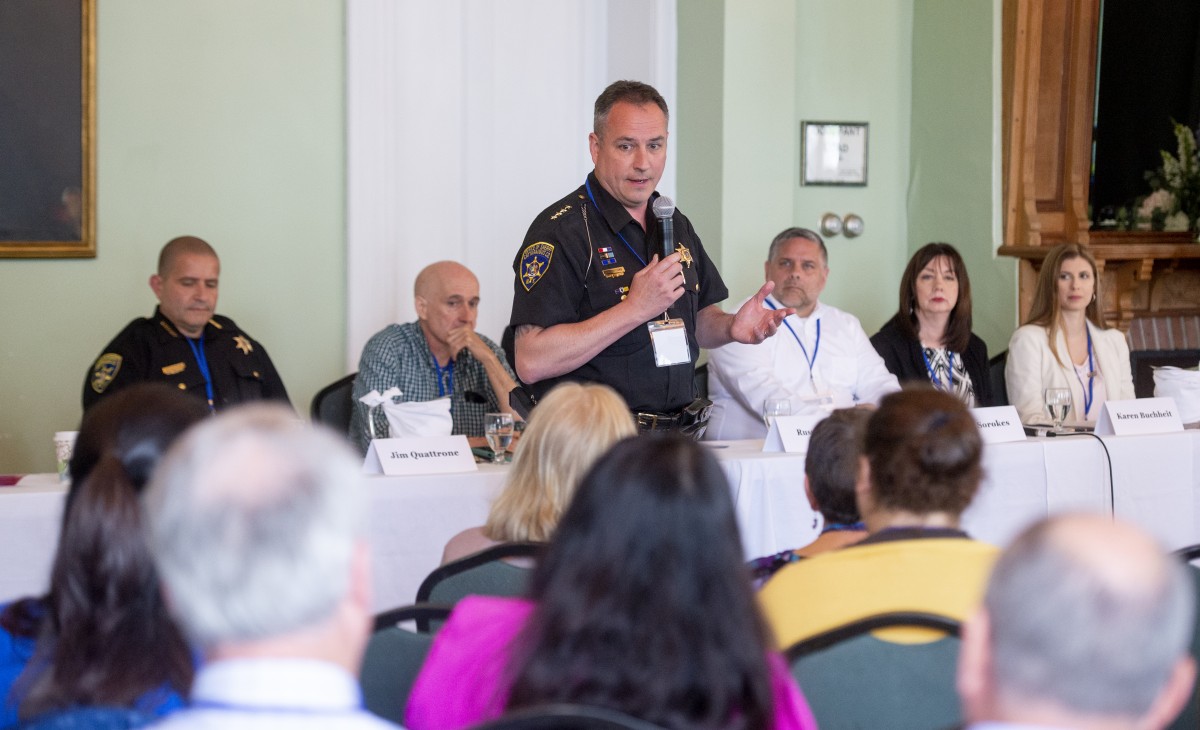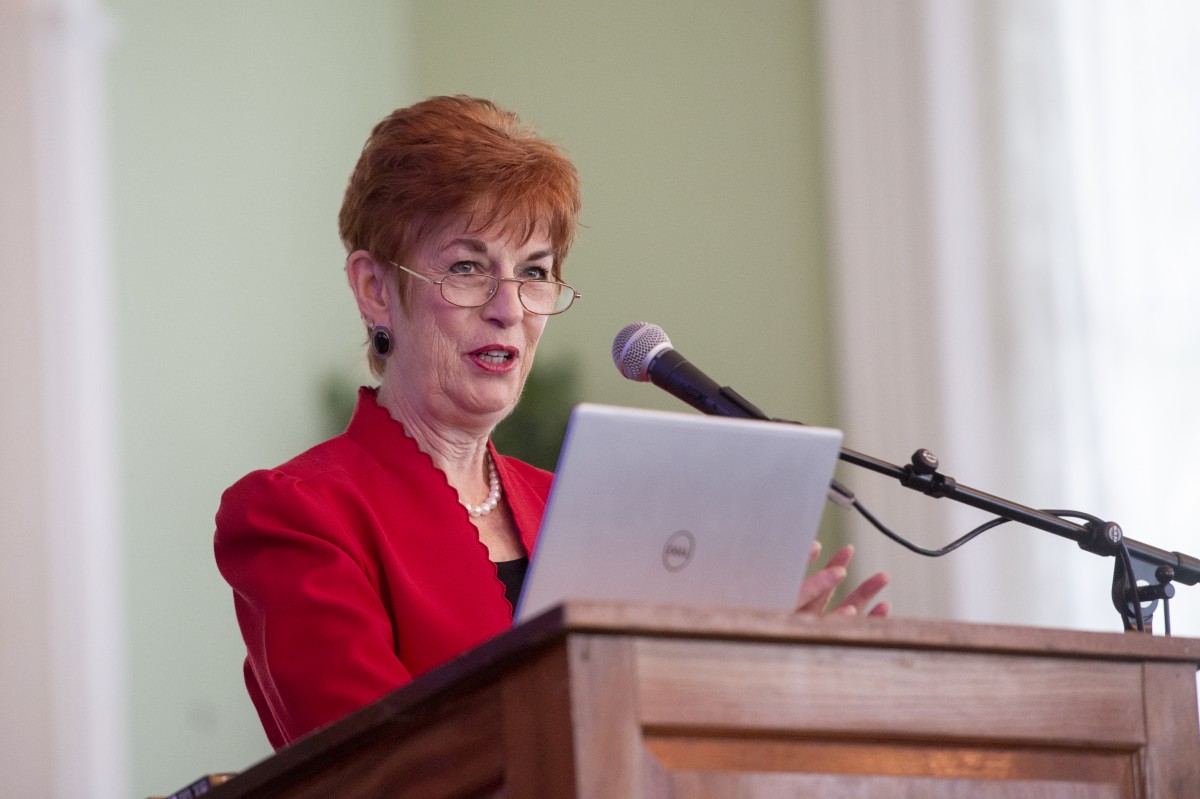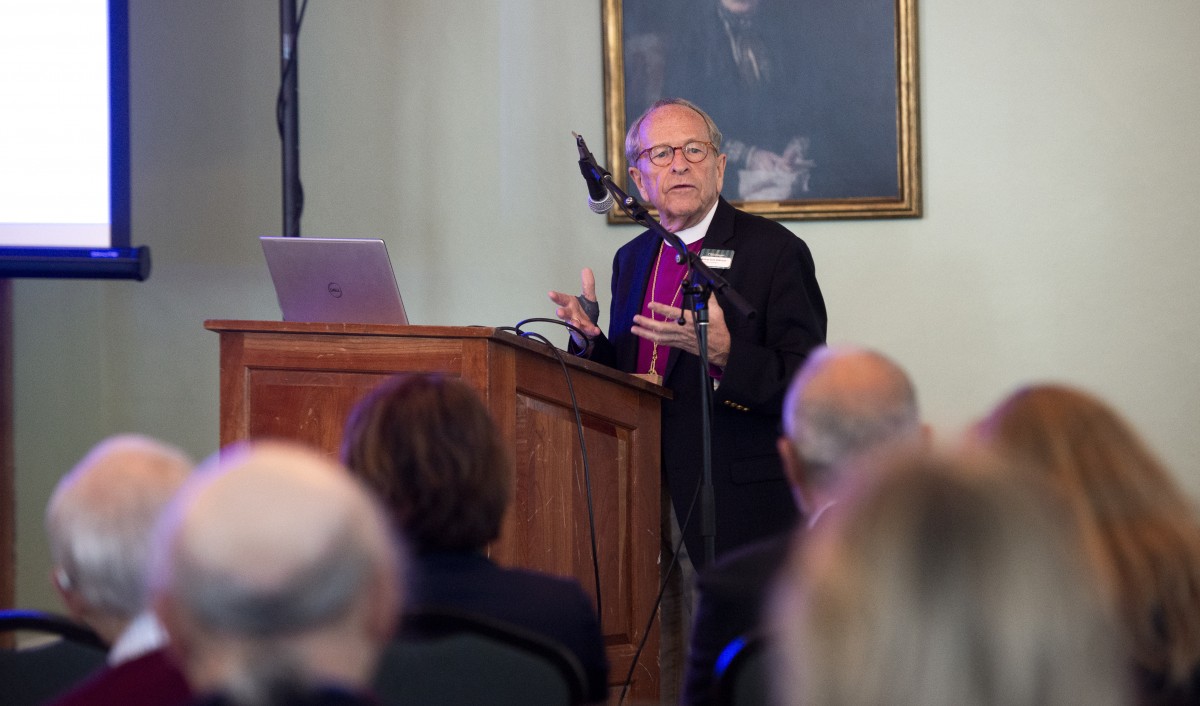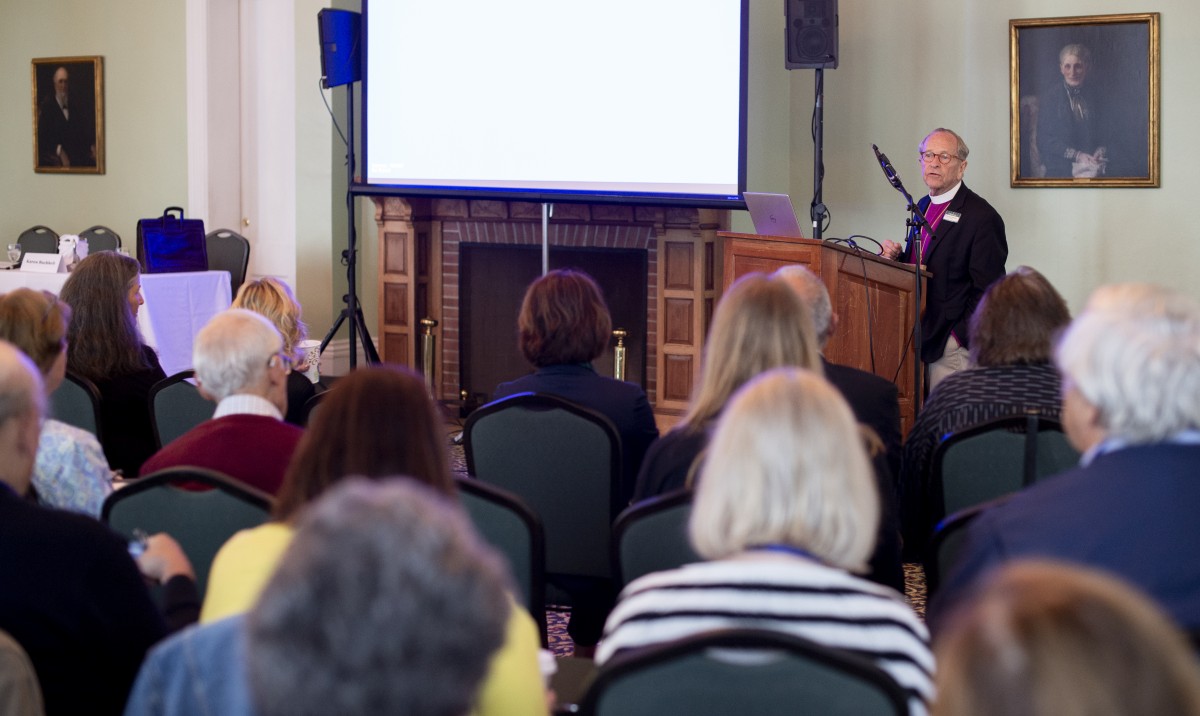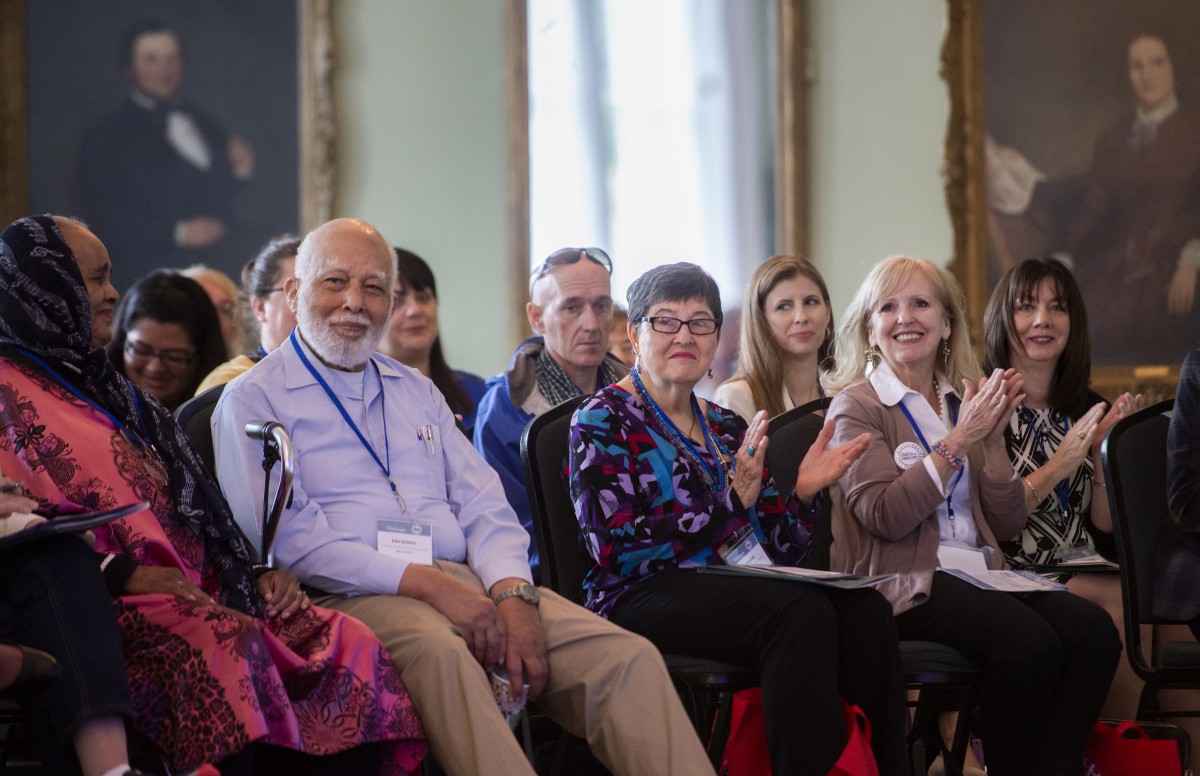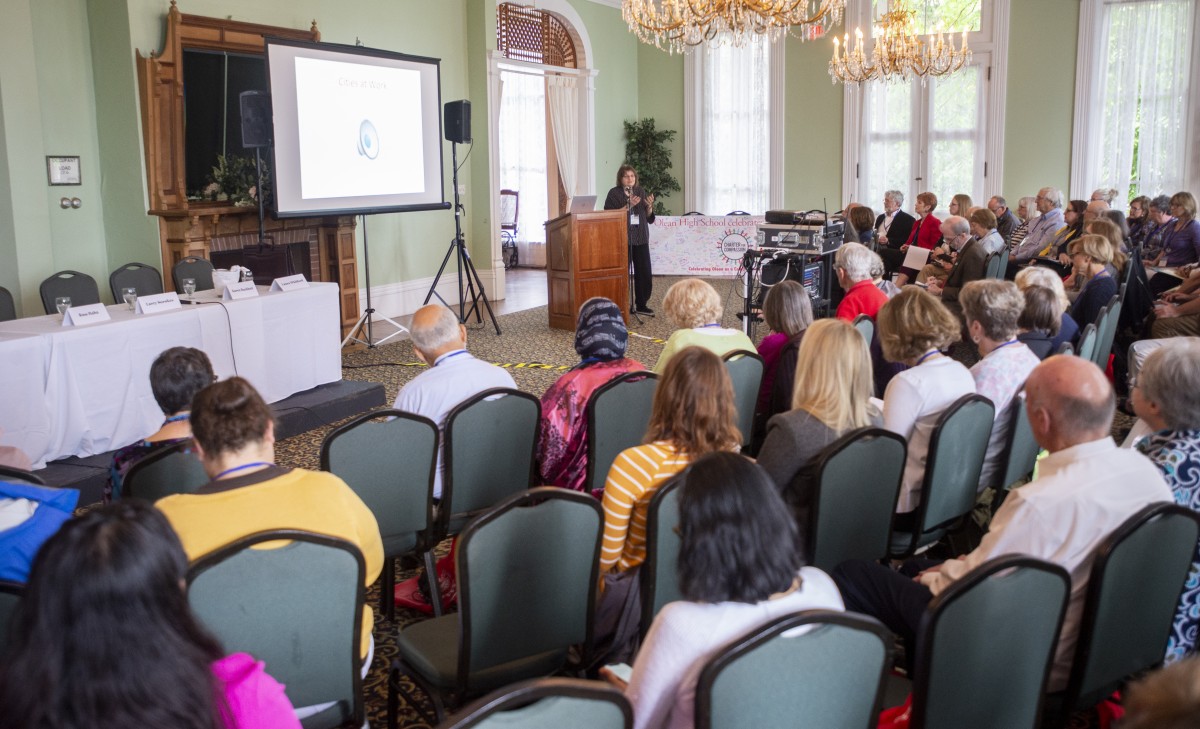In honor of its 10th anniversary, Karen Armstrong’s Charter for Compassion returned to the place where it all began.
The Olean Area Charter for Compassion partnered with the Institution to present “Cultivating Compassion in Your Community,” a regional conference designed to teach community members how compassion can bring them together. The conference was held on Thursday, June 13, at the Athenaeum Hotel and celebrated the anniversary of the Charter’s signing at Chautauqua.
Since 1999, Armstrong has made 39 appearances at the Institution, so when she won the Ted Prize in 2008 for her wish to create the Charter, she knew Chautauqua was the ideal place to see her vision come to fruition.
Maureen Rovegno, director of the Department of Religion, worked closely with Armstrong to prepare the Charter.
“Because Karen Armstrong was such a big part of Chautauqua, we were honored when she chose to come here and craft this really special Charter,” Rovengo said. “The final word-smithing, and I am very proud of this, was finalized right here, in the Department of Religion. I can’t think of a better place in the world to bring something so important to life.”
The Charter was officially signed and unveiled in November 2009. Since then, it has been signed by millions in 400 cities throughout 70 countries.
Vice President of Religion and Senior Pastor, the Rt. Rev. V. Gene Robinson, opened the event by expressing his belief that compassion is not simply a want in present-day America, but a need.
“Lord knows we always stand in need of compassion, but by any measure we need compassion more today than we’ve needed it in a long time,” Robinson said. “The fact that you are here, on our campus, to talk about that is really important.”
Robinson said that compassion is an inclusive concept and therefore, the Charter applies to all members of a community, regardless of differing backgrounds.
“Compassion is a little bit like love; it has less to do with a feeling than it does to do with an attitude,” he said. “We are called to love one another; whether we like one another or not, that’s irrelevant. As I understand in my Christian tradition, we are called to treat one another as the children of God we are —whether we like the person, or agree with them, or not. I think compassion is very much that way.”
Marilyn Turkovich represented the Charter as the event’s keynote speaker. Turkovich started working for Charter for Compassion in 2013 as the education director, and since then, has moved into a number of different roles. She currently serves as the international executive director.
Throughout her career, Turkovich’s work has been primarily in areas of global awareness, international education, race and social justice, and in instructional design. She has worked internationally in Brazil, Croatia, Guatemala, India, Japan and with community groups in the United States to develop new program approaches in community involvement, action and education.
Turkovich walked the audience through some of the communities she has seen the Charter transform. According to her, that journey starts with “changing our attitude about our capabilities.”
“I think that it’s so important to consider that in order to bring about any transformational change, what we have to do is change our story,” she said. “As I have the opportunity to go around the world, people will say ‘Yes, but.’ The reality is that compassion for us is action. You act, you make it a verb.”
However, Turkovich recognizes implementing compassion is not an easy task.
“Compassion is hard work,” Turkovich said. “Compassion oftentimes means that you make an awful lot of mistakes.”
In order to simplify it, Turkovich said if one wants to make their city a “city of compassion,” they focus only on the change they can achieve in the 24 hours ahead of them.
“One of the ways, perhaps, of thinking about history, is to narrow it down into a 24-hour day,” she said. “Think about the opportunities you could have as you peruse history and what all has happened throughout these many, many years. If we could begin to look at it like that, we could begin to understand it.”


